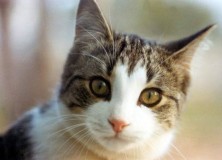Your cart is currently empty!
2011
-
E-lit Exhibit and Performance at MLA 2012
Electronic literature will take center stage at the 2012 Modern Language Association conference in Seattle thanks to Board Member Dene Grigar, Lori Emerson, and Kathi Inman Berens. The exhibit, the… Read more.
-
SUNY Buffalo E-Poetry Gallery & Events (11/17-2/18/12)
SUNY Buffalo hosted the 10th anniversary of E-Poetry earlier this year, and this past thursday, opened the Digital Poetry Exhibition at the UB Art Gallery. With its Electronic Poetry Center… Read more.
·
-
Calls for Works: ELO 2012 Gallery (11/30; 6/13-23/12)
In addition to the call for presentations at the ELO 2012 conference Electrifying Literature: Affordances and Constraints, to be held in Morgantown, WV (June 20-23, 2011), the conference organizers have… Read more.
·
-
ELC2 Launch @ The Kitchen, NYC (Dec. 13)
You are invited to another launch of the Electronic Literature Collection, volume 2, this time at The Kitchen performance space (512 W. 19th Street, NYC) with a reading on Tuesday,… Read more.
·
-
MIT Welcomes ELO
Electronic literature artists and enthusiasts gathered at MIT’s new Media Lab Extension building on Monday, Sept. 19 to celebrate ELO’s move its new home at the Cambridge, Massachusetts campus. The… Read more.
·
-
MIT to Host the Electronic Literature Organization
[Official Release] MIT has long been a premier center of technological innovation. On July 1, a new locus for literary innovation will be added to the mix: The campus will… Read more.
-
Electronic Literature Collection, Volume 2 Launches
Announcing the publication of The Electronic Literature Collection, Volume 2. ELO is excited to announce the publication of its 2nd collection of electronic literature. With its wide ranging forms, Volume… Read more.
·

